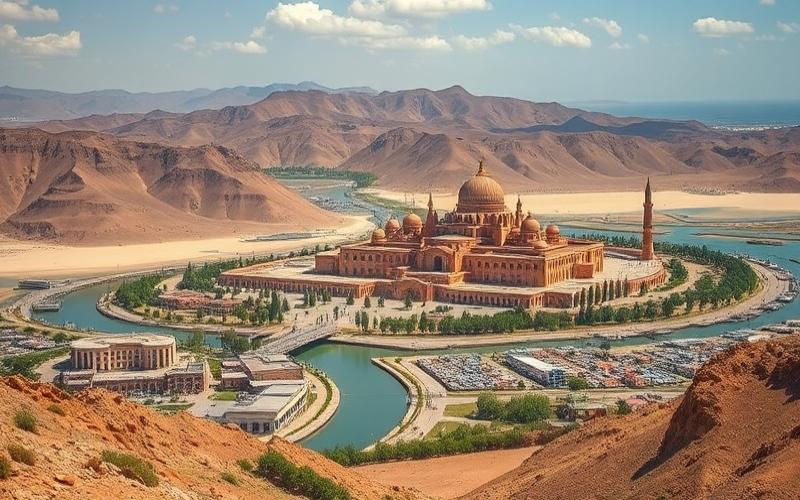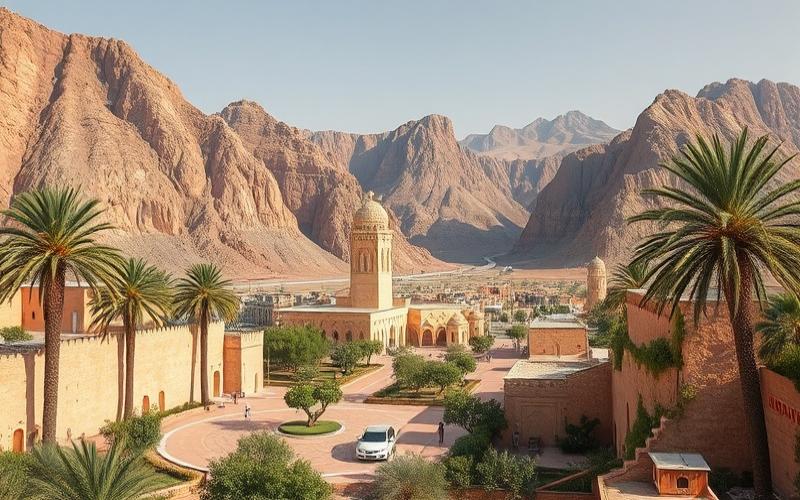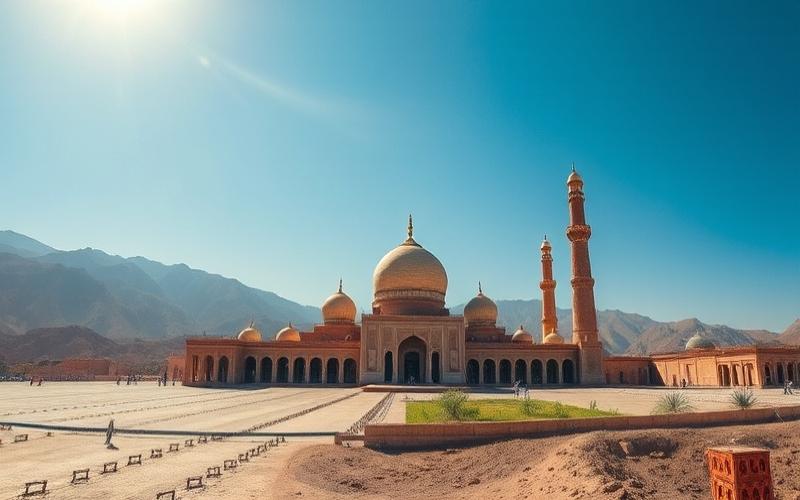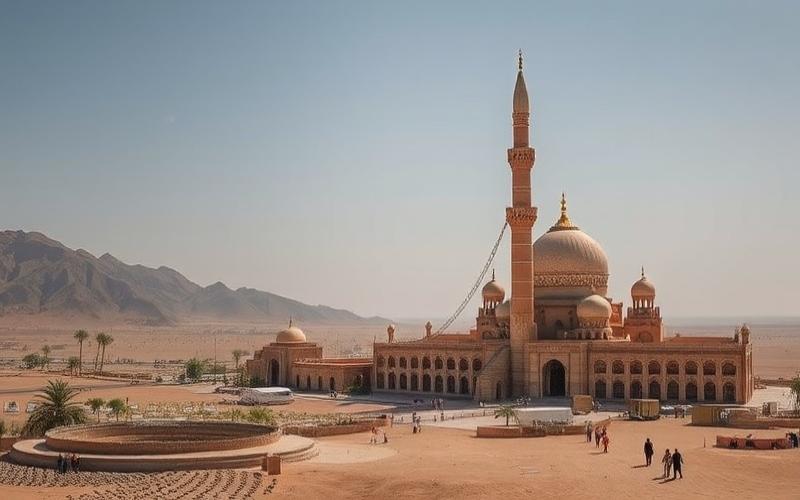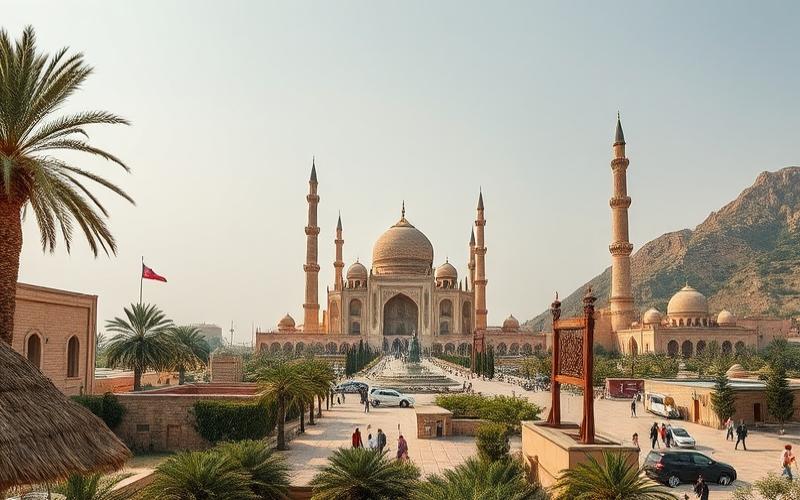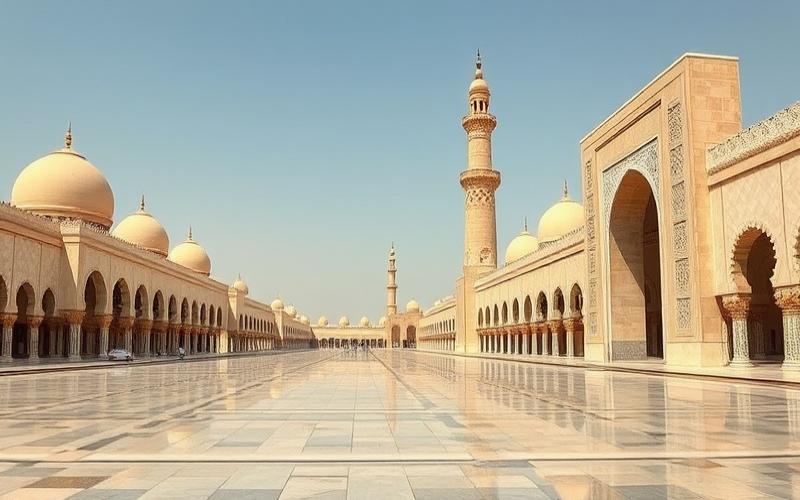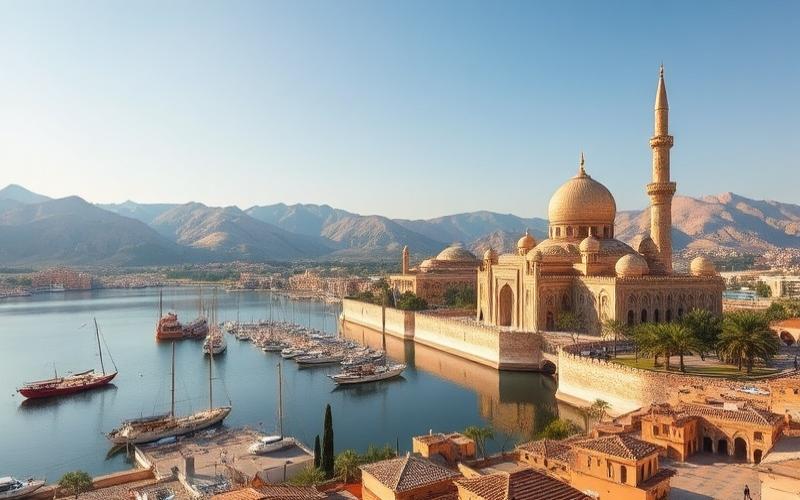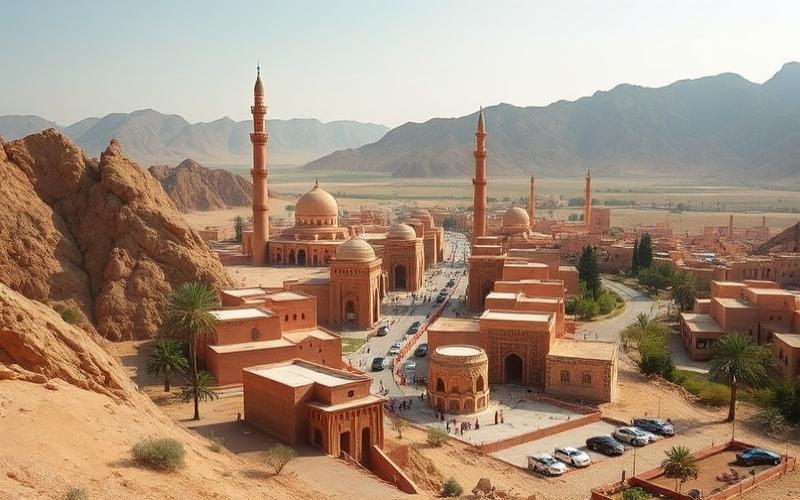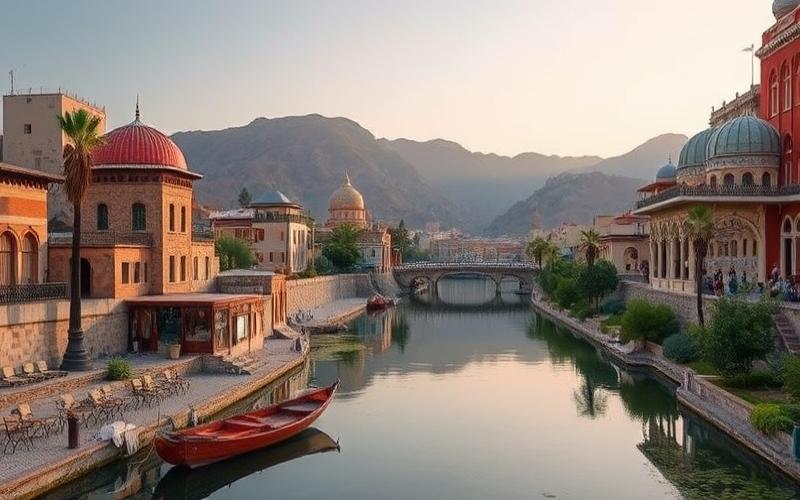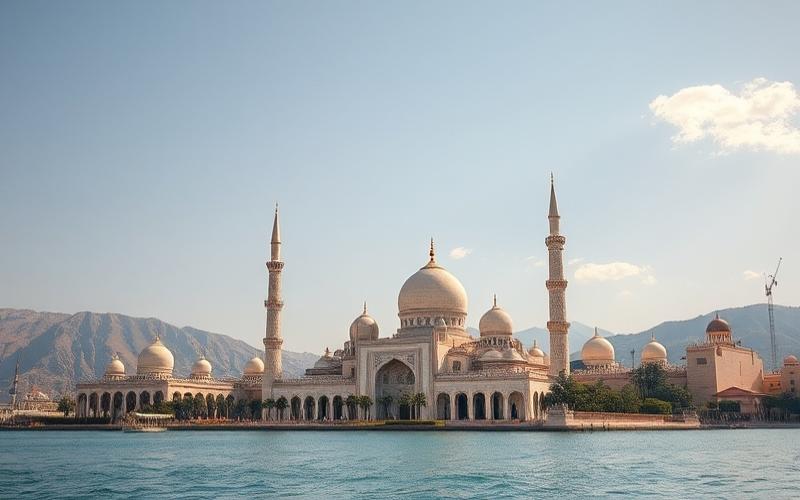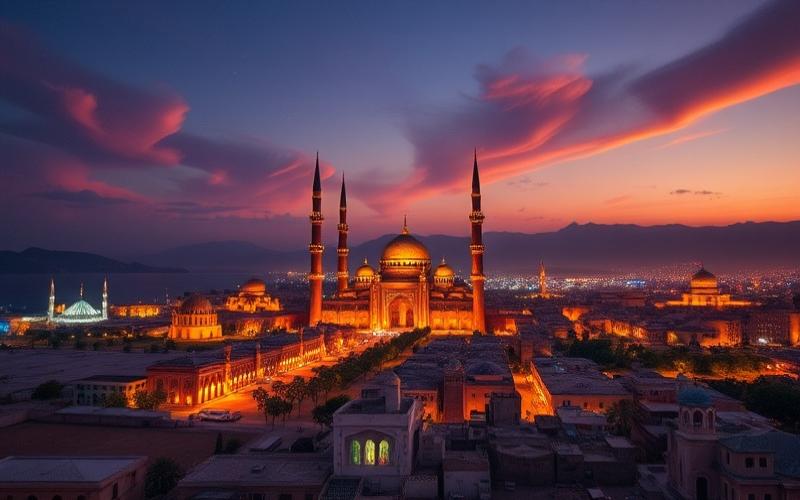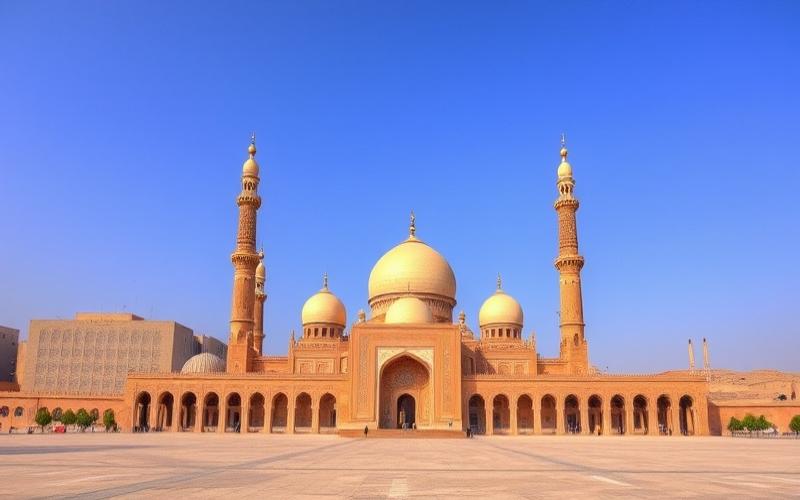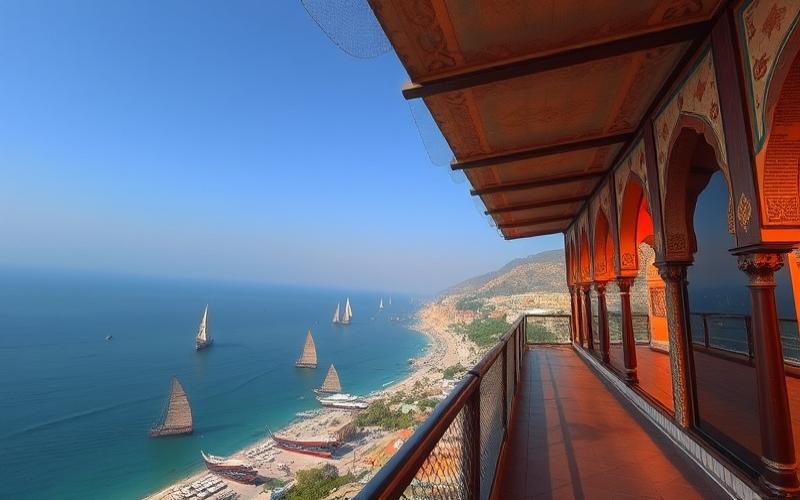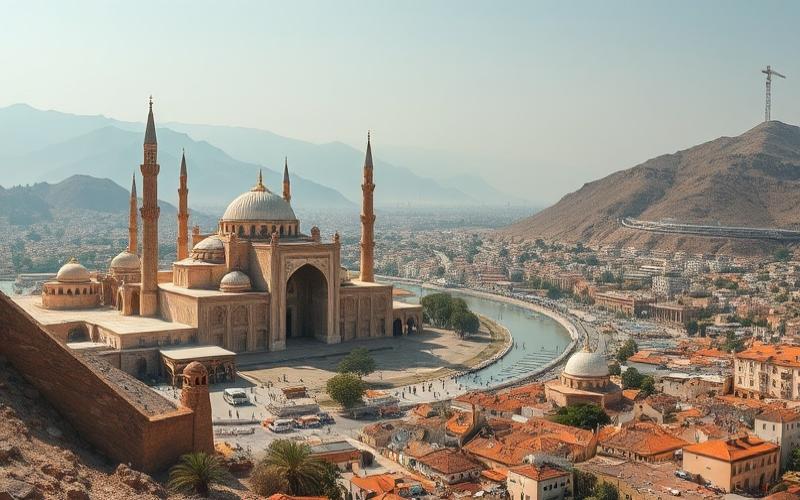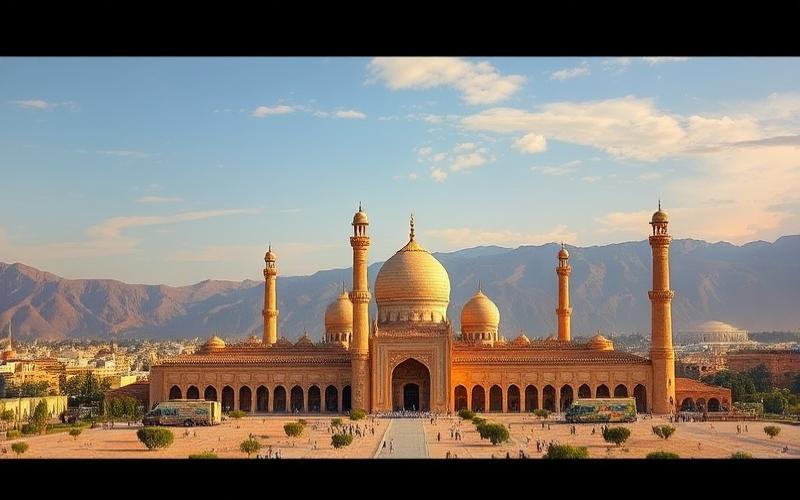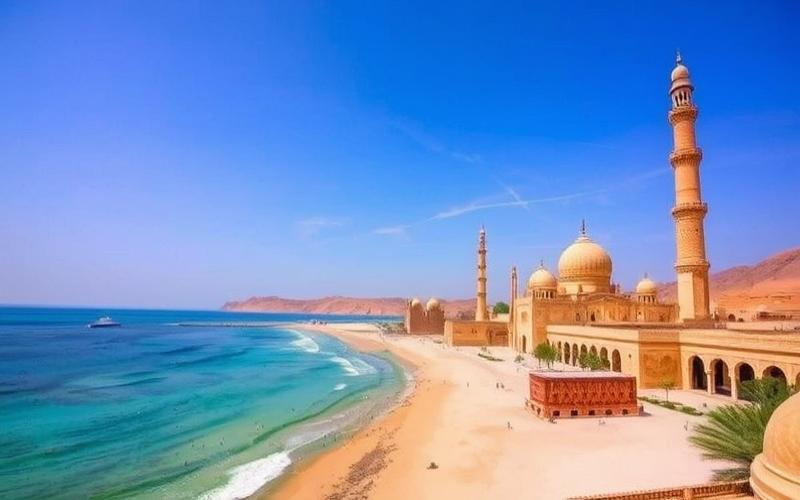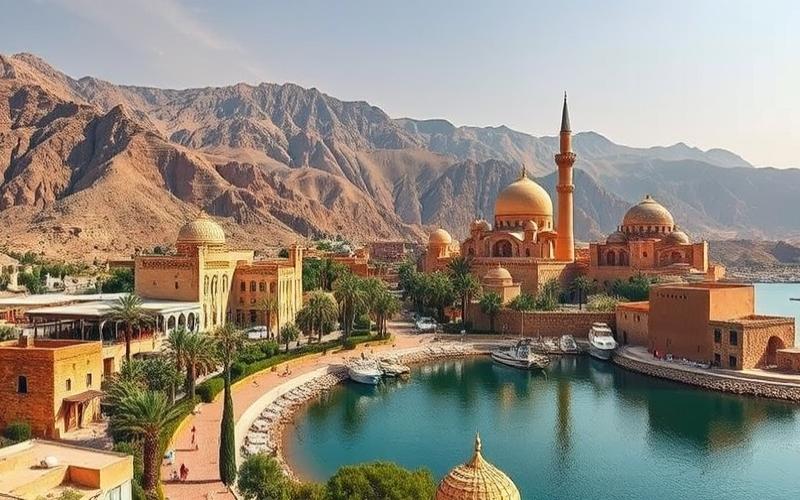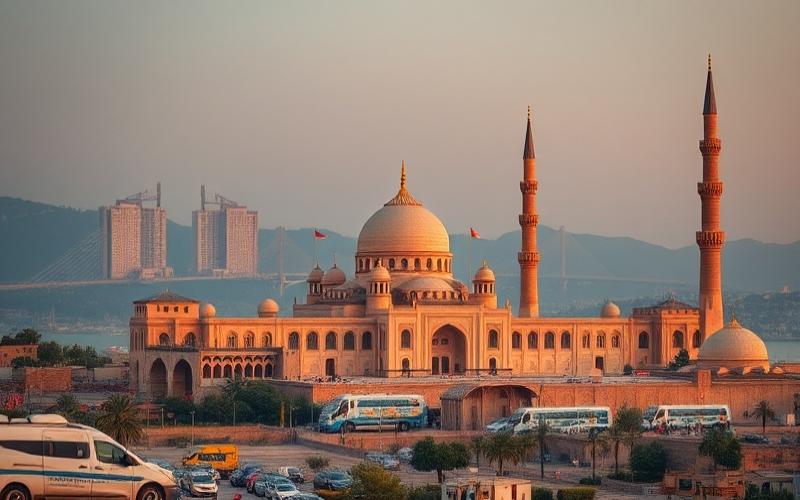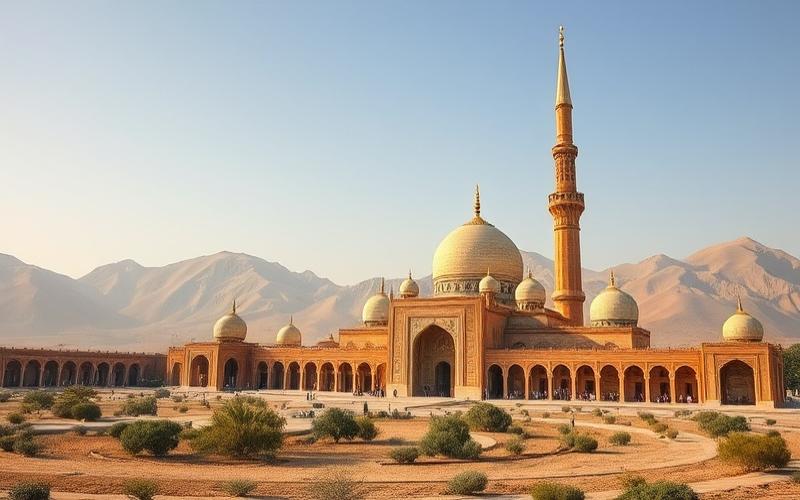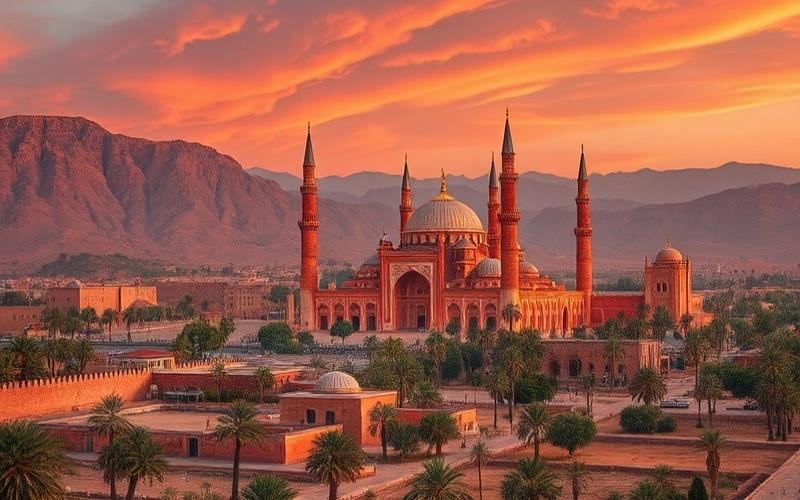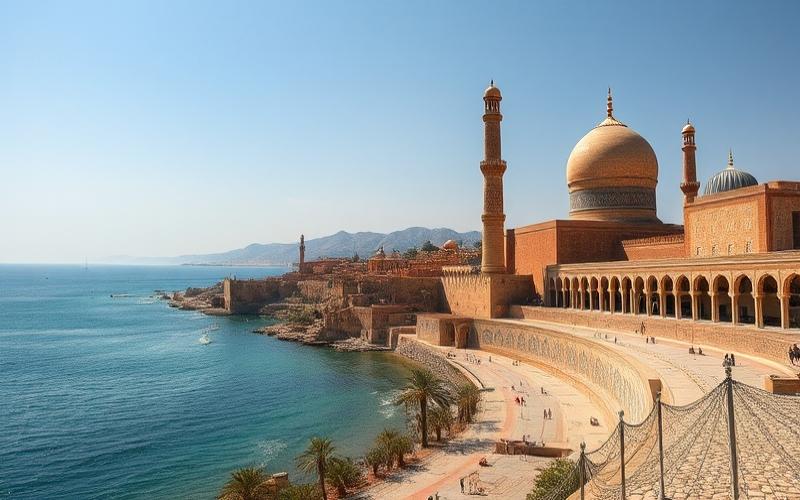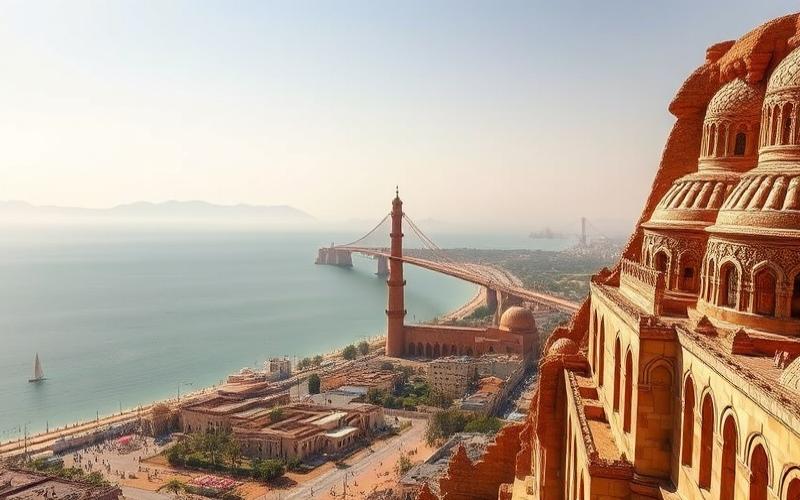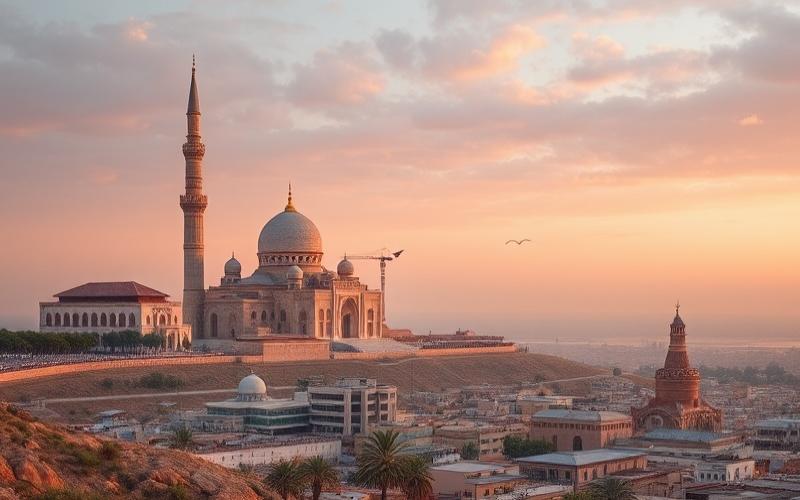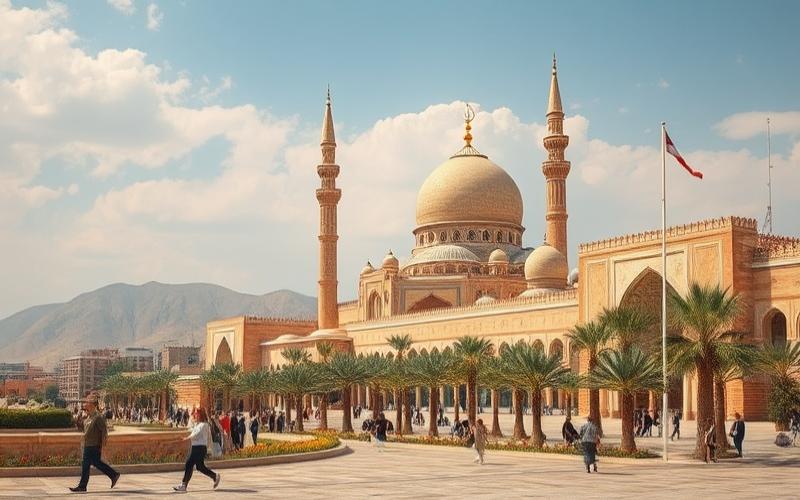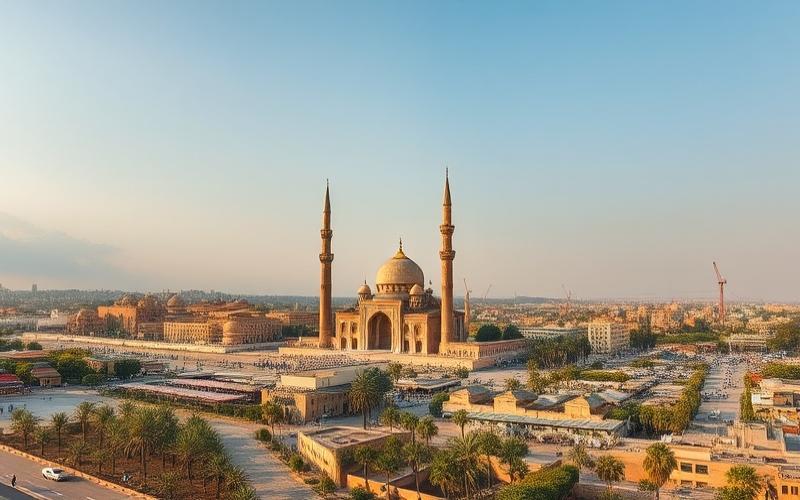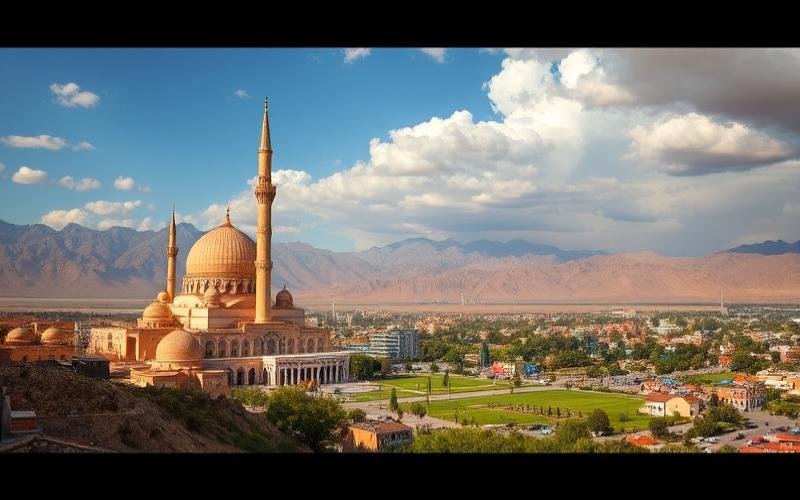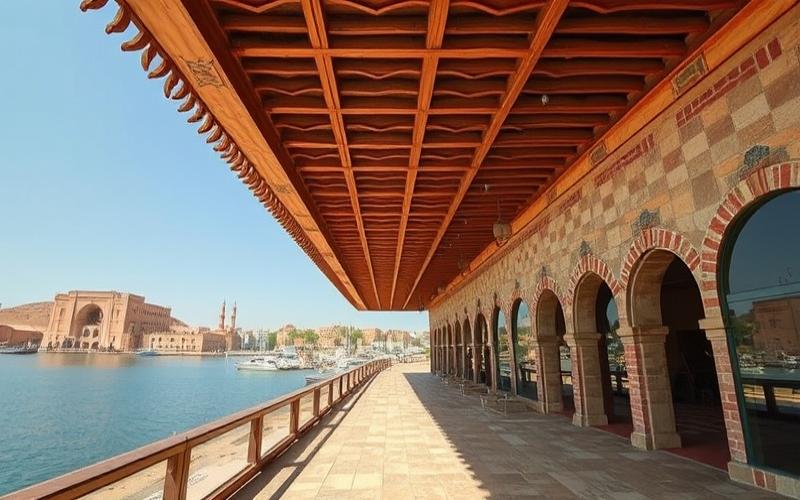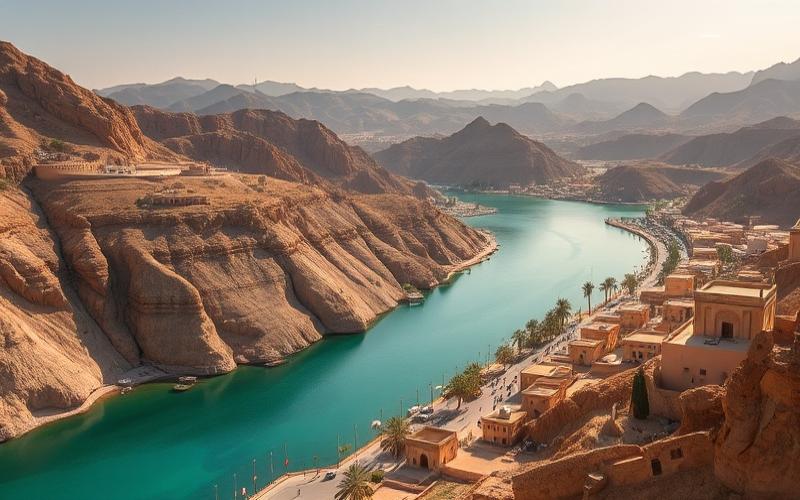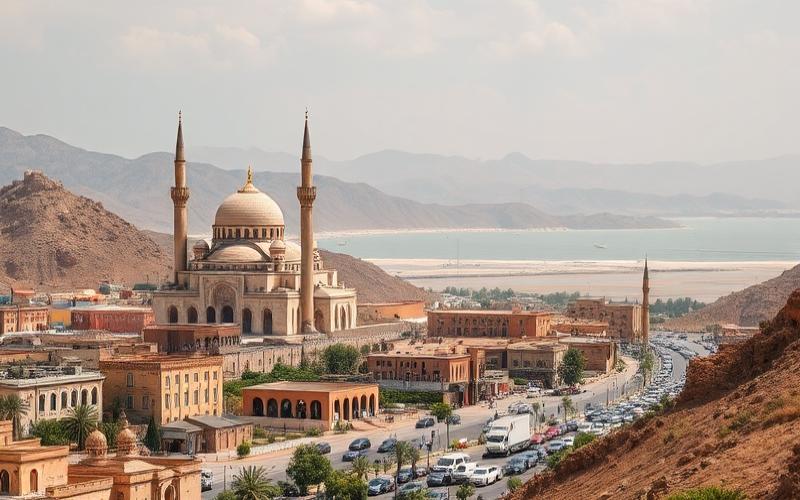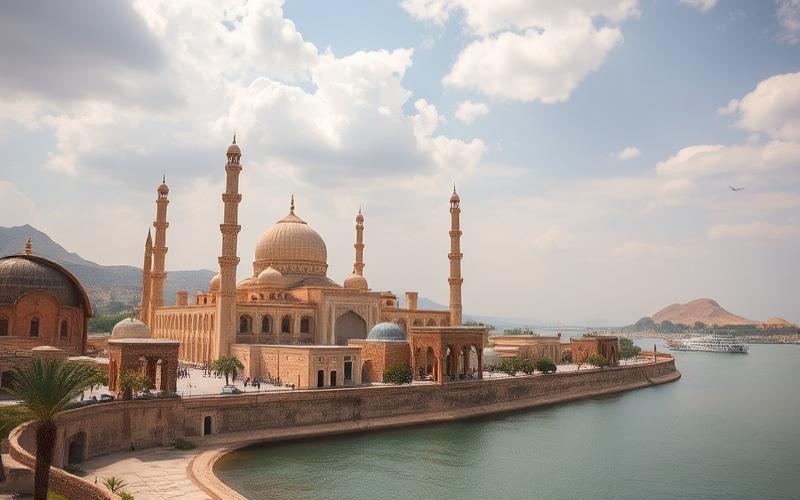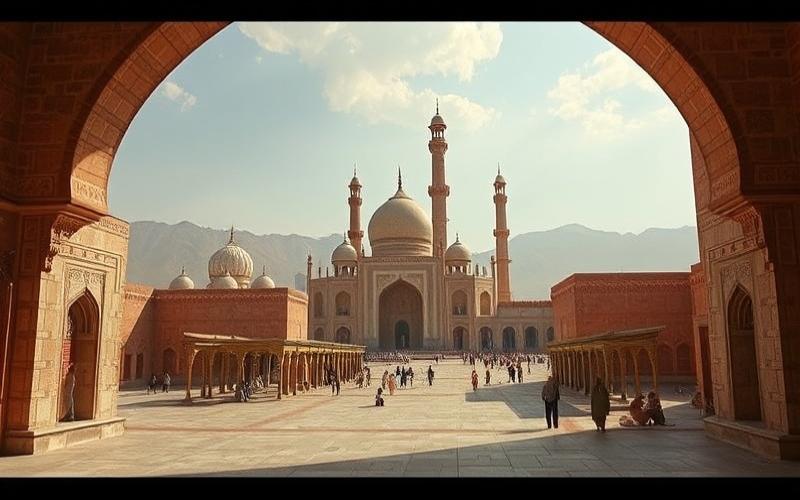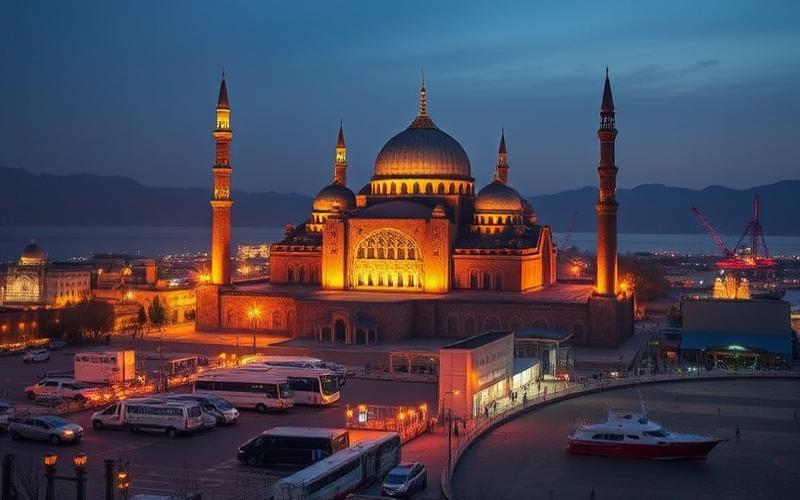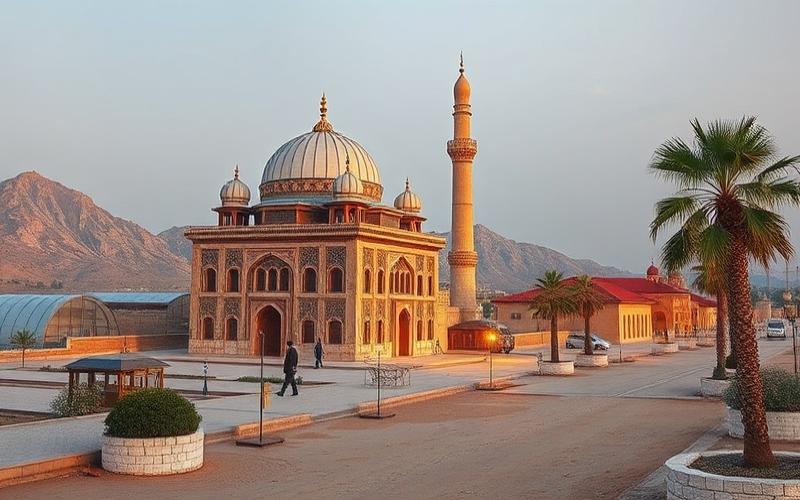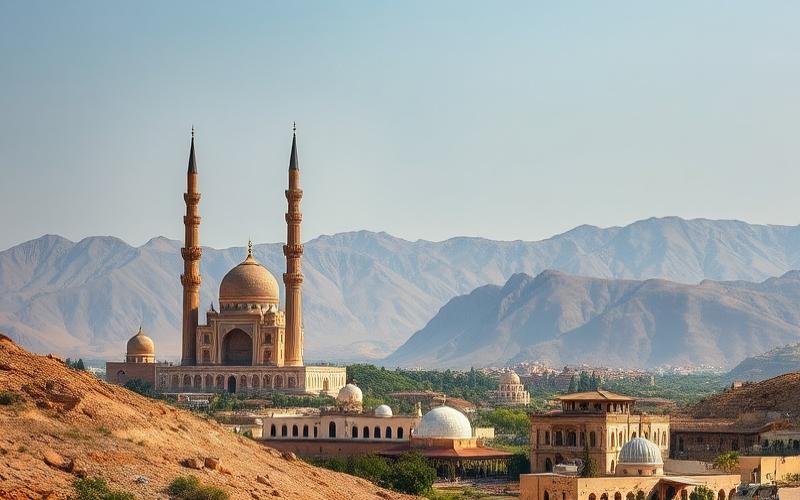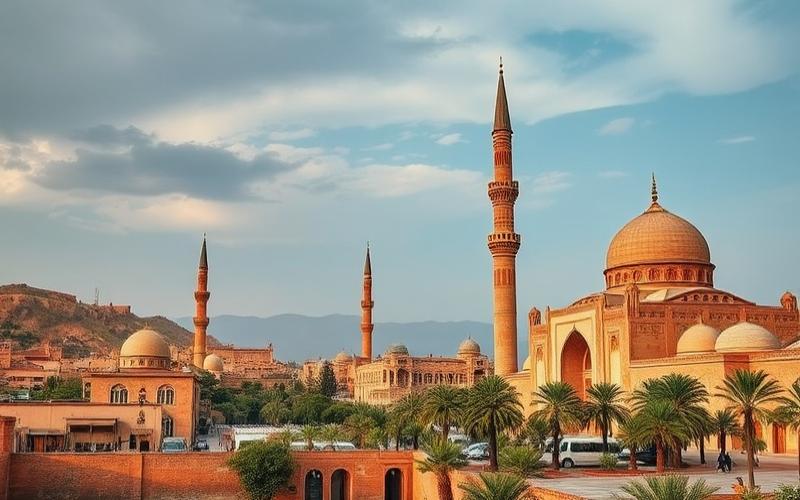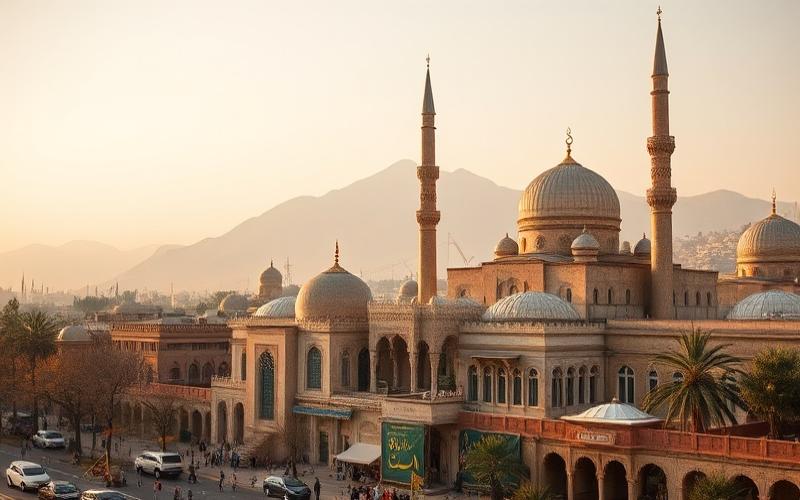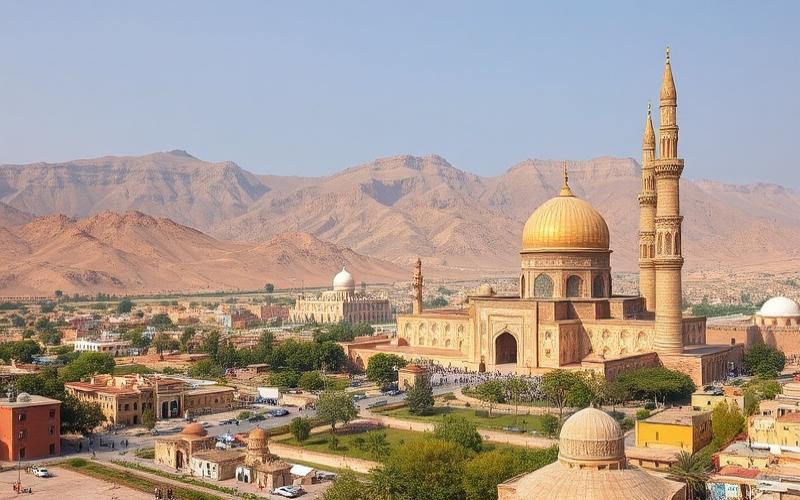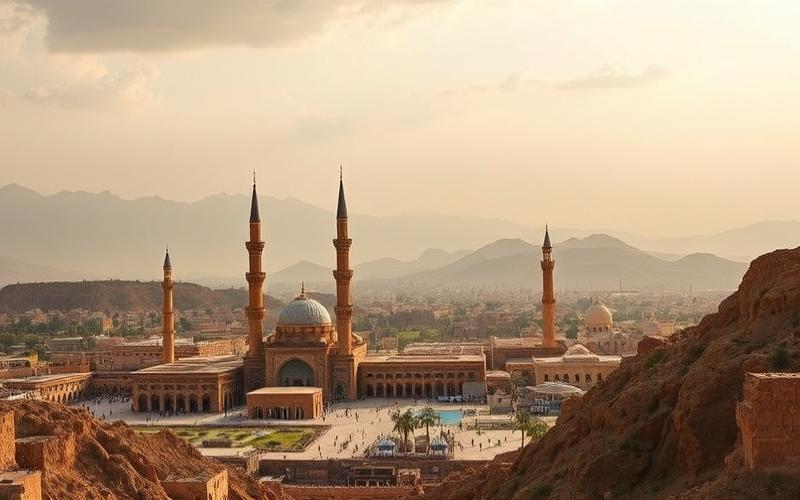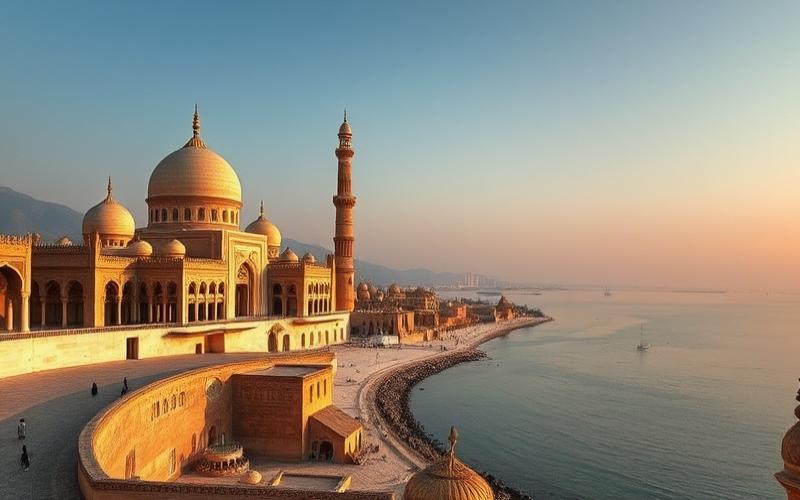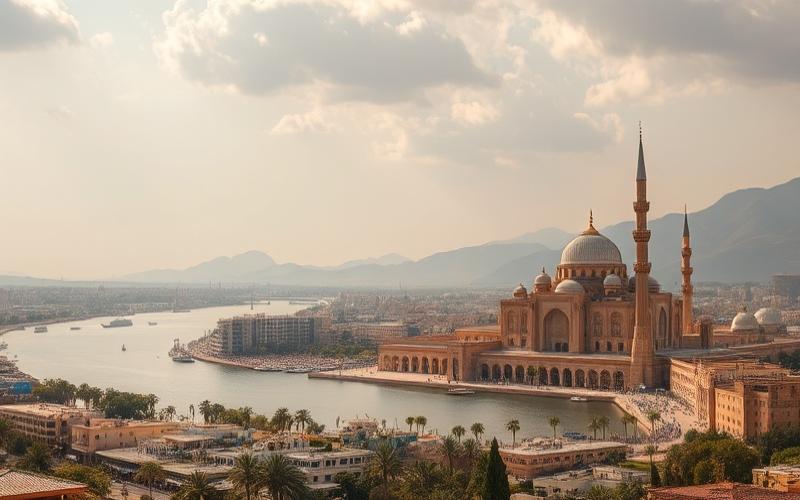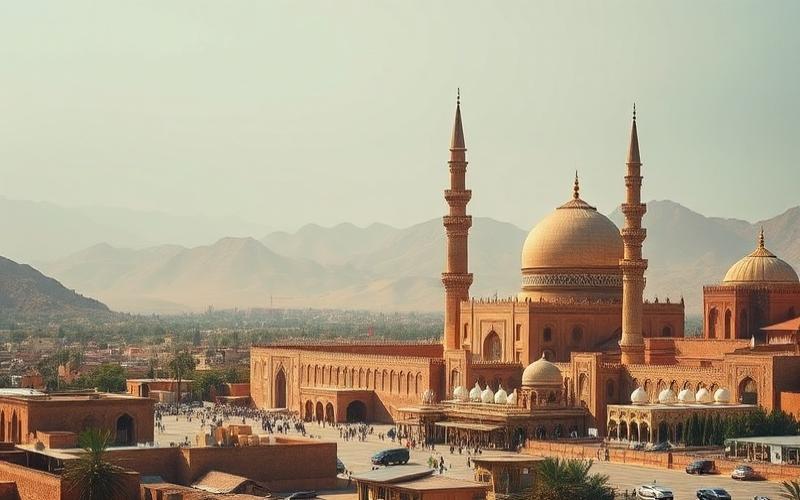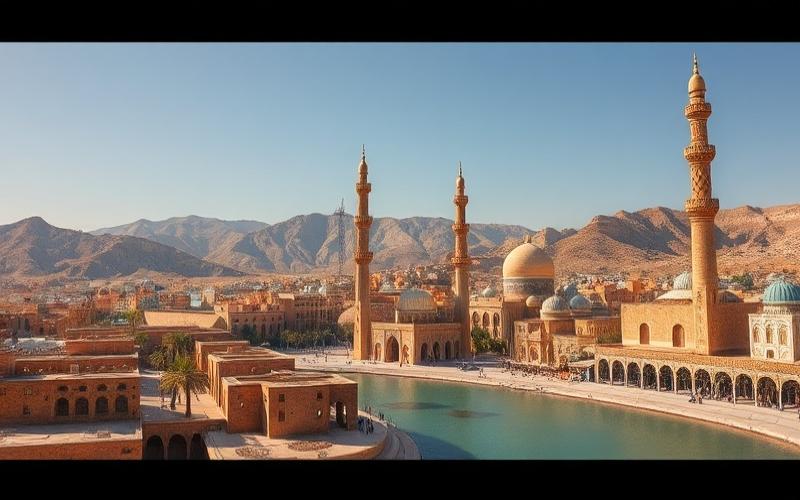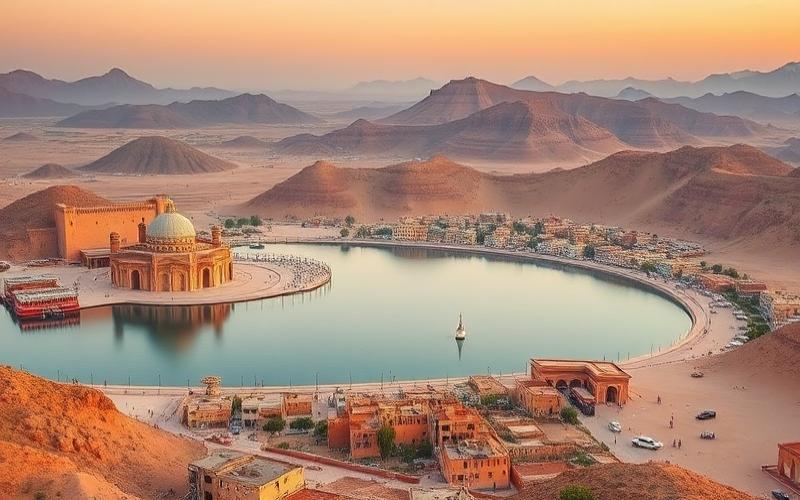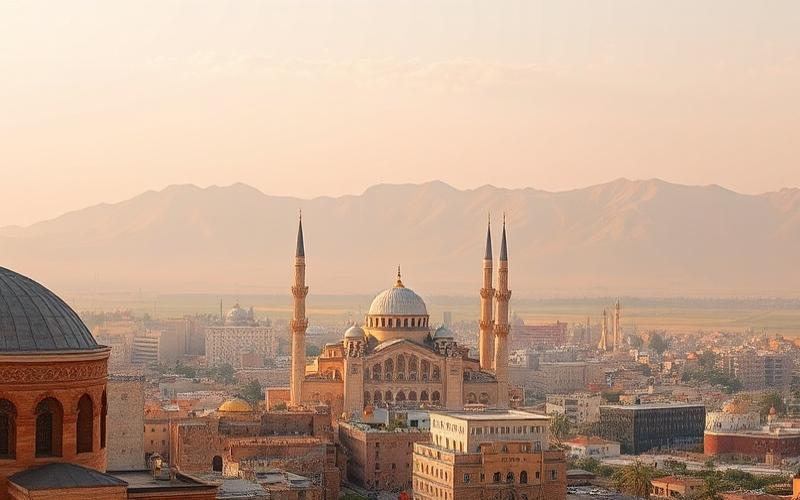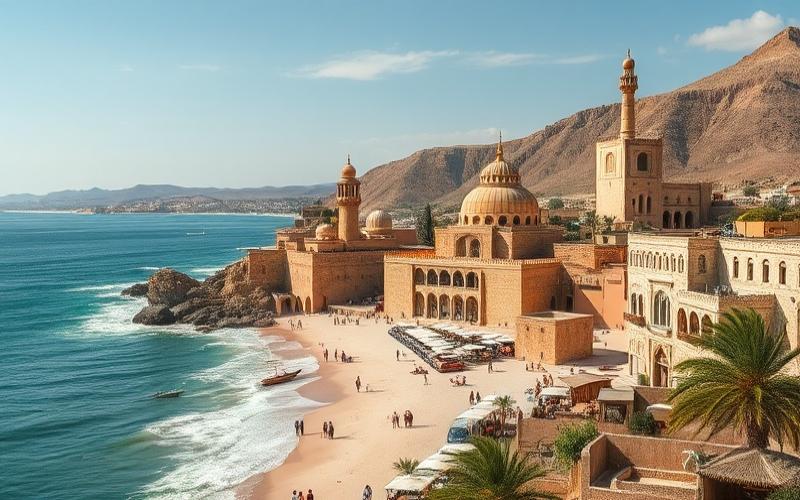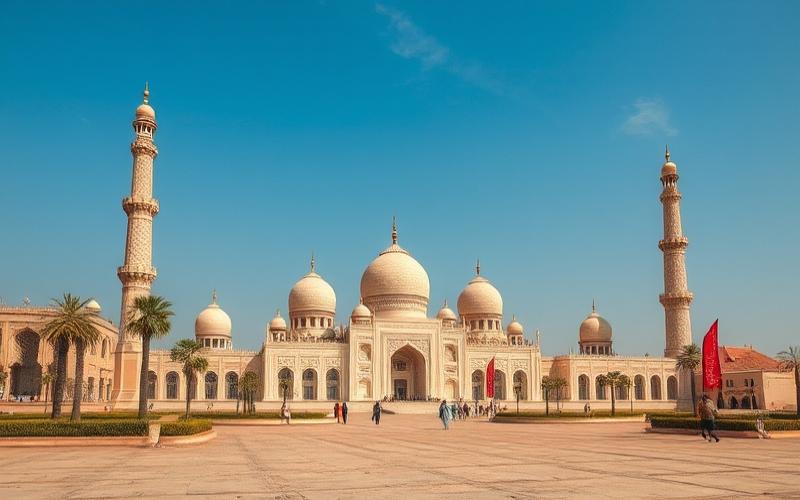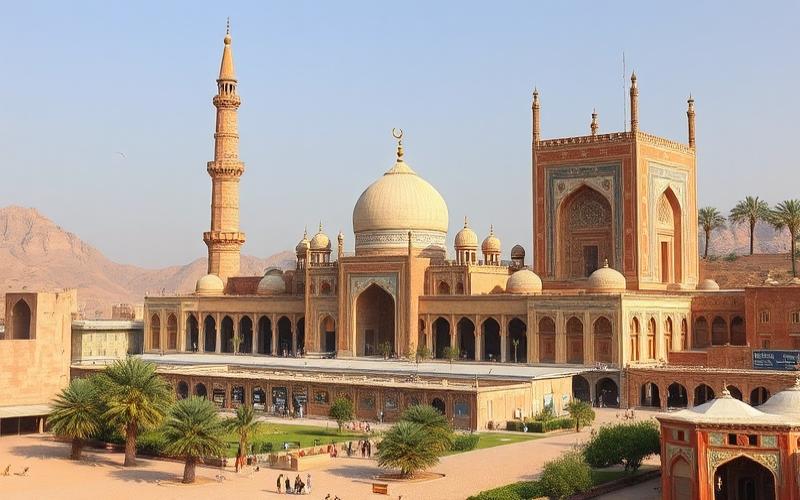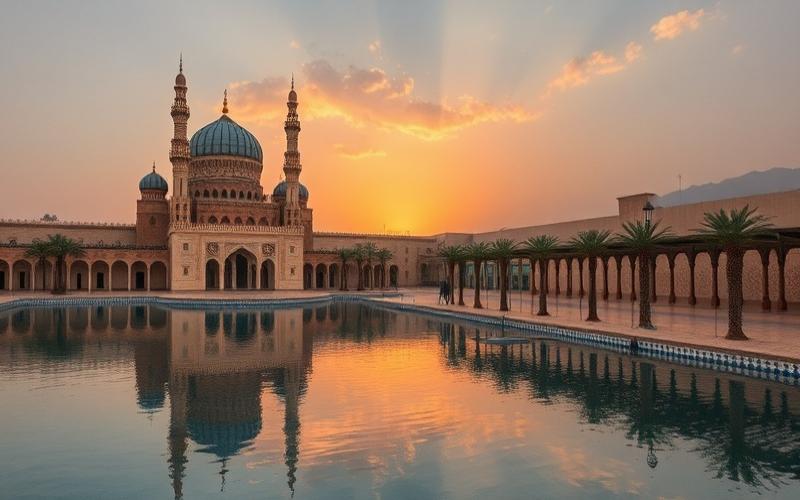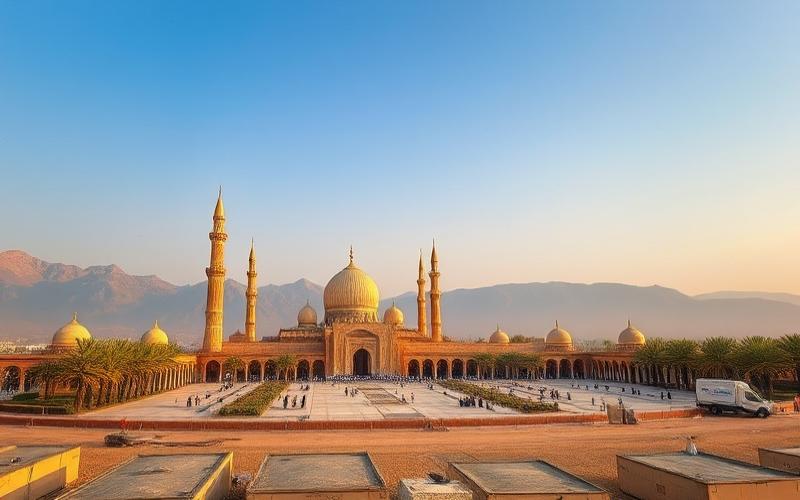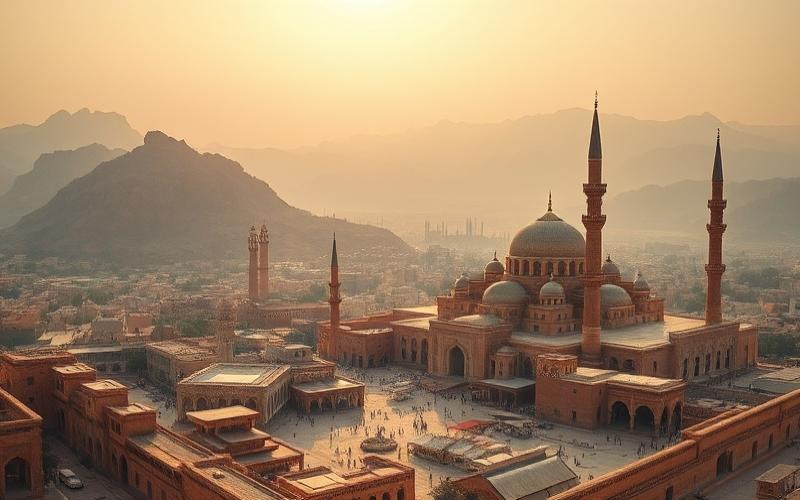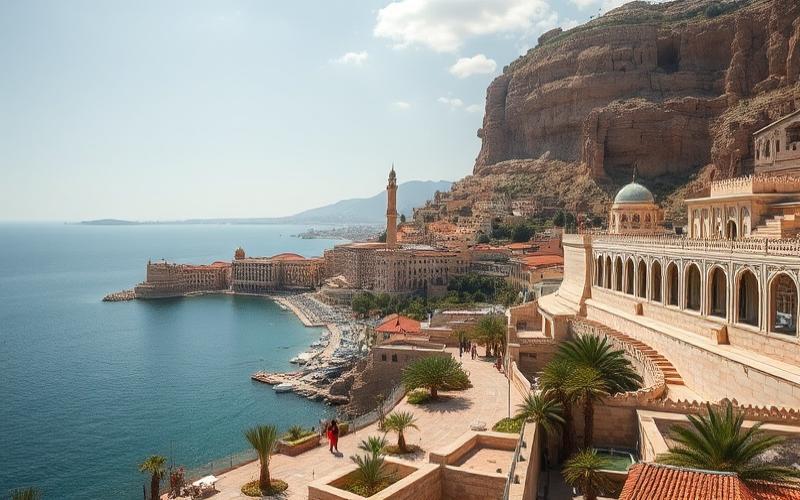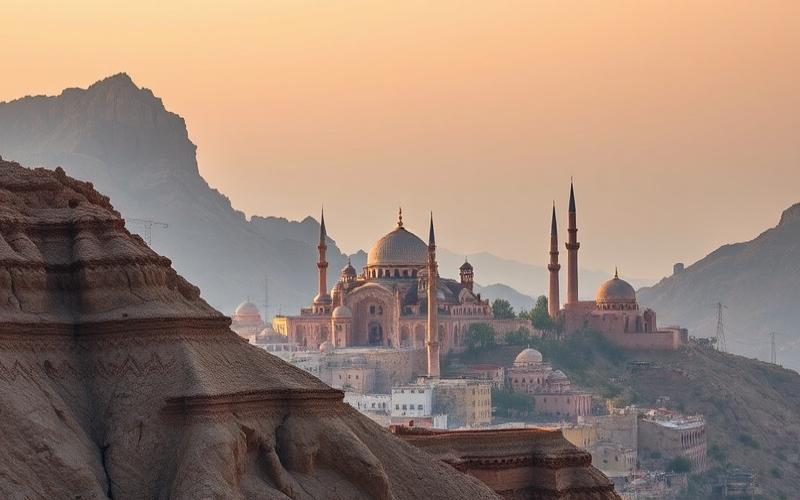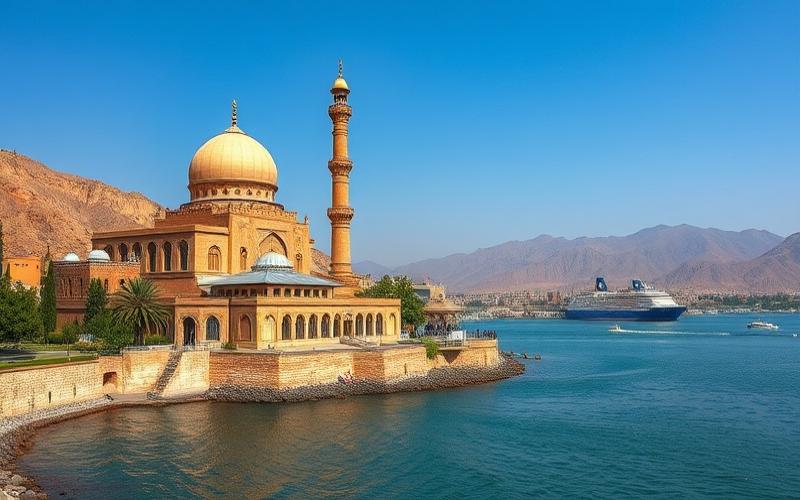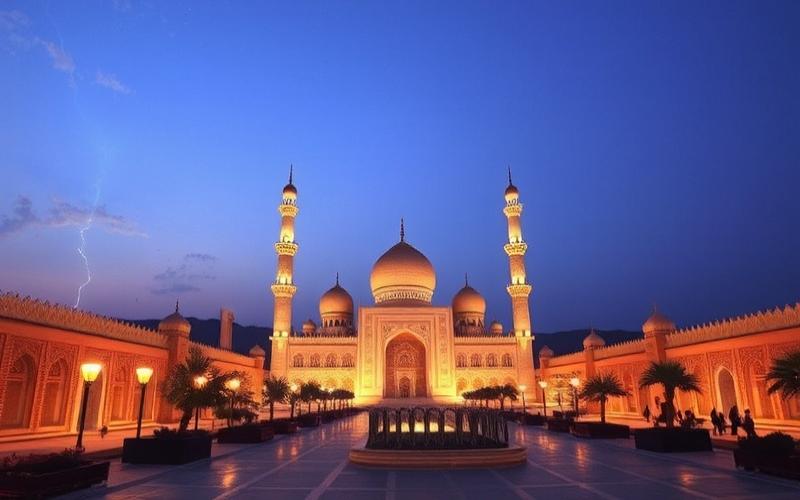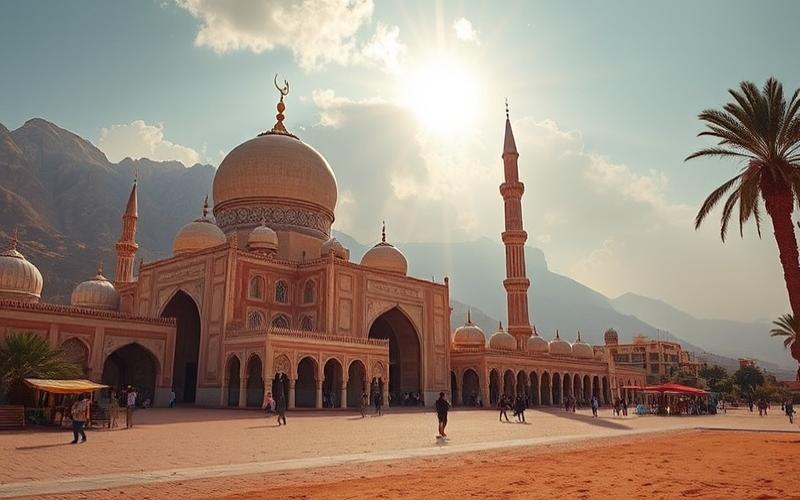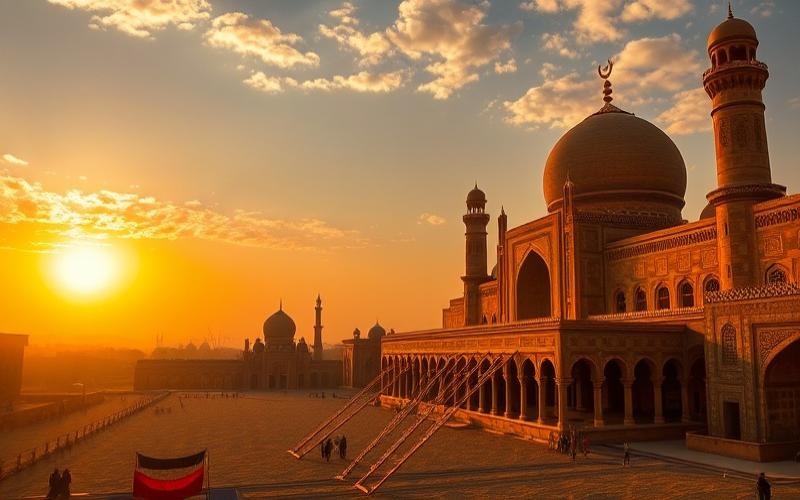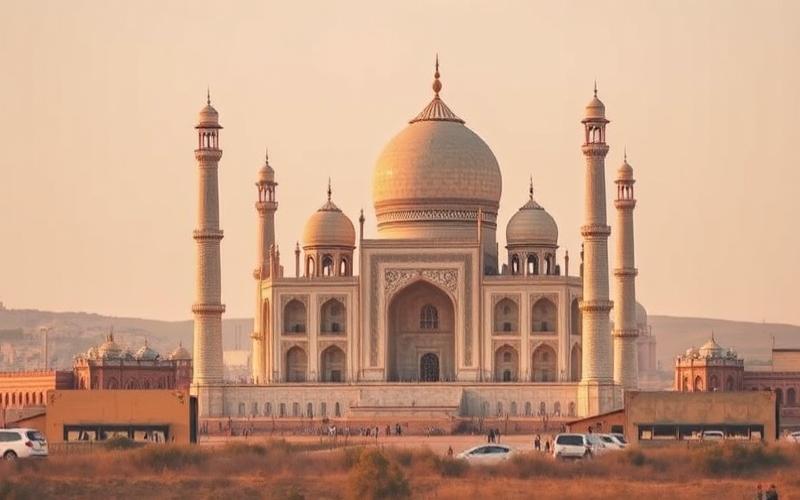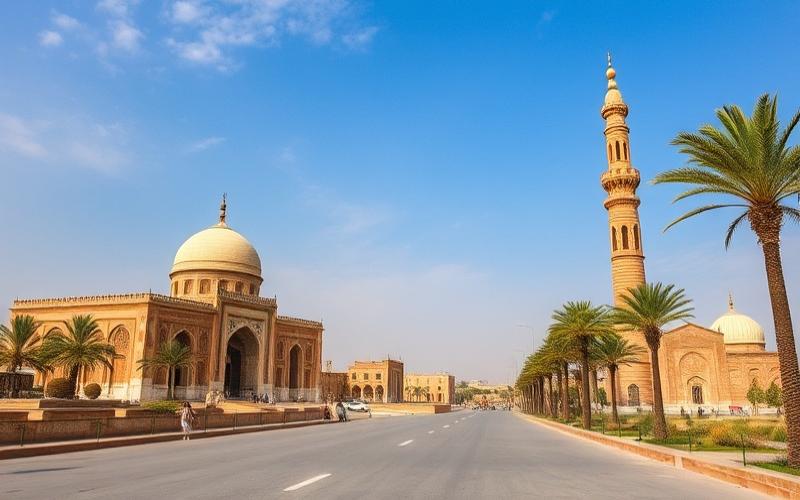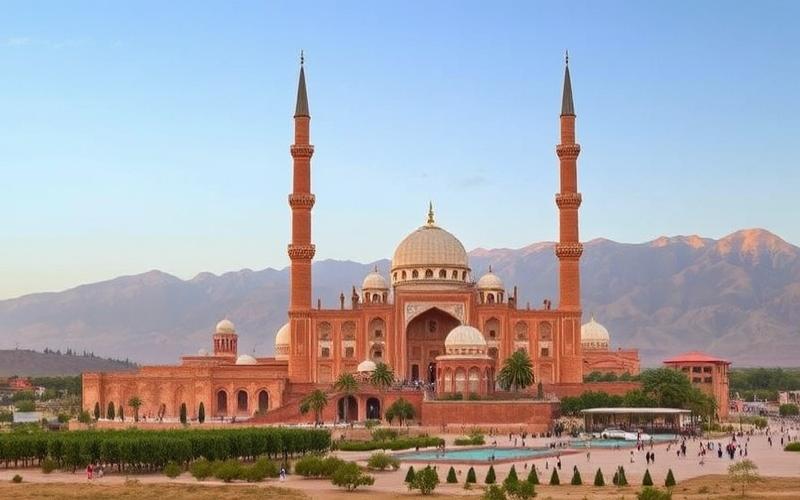
 Published on and written by Cyril Jarnias
Published on and written by Cyril Jarnias
In a global context where environmental issues are gaining unprecedented importance, Bahrain stands out through notable efforts in regulations and initiatives for ecological sustainability.
Although this small kingdom is often associated with oil wealth, it is committed to an energy and sustainable transition, aiming to minimize its carbon footprint.
Laws on environmental protection, along with innovative projects such as renewable energy and marine biodiversity management, demonstrate the commitment to creating a greener future for its citizens.
In this article, we will explore how Bahrain is navigating these environmental challenges, analyzing the regulatory frameworks and concrete actions deployed to protect and preserve its natural resources.
Environmental Law in Bahrain: Legal and Regulatory Framework
Legal and Regulatory Framework for the Environment in Bahrain
The environmental legal framework in Bahrain primarily relies on Environmental Law No. 7 of 2022, which replaces previous legislation. This law covers numerous areas: biodiversity protection, hazardous waste management, air and water pollution, environmental disaster management, radiation protection, ban on single-use plastic bags and import of plastic waste, regulation of the refrigeration sector, updating emission standards, air and sea monitoring, and creation of new protected areas.
Key Environmental Laws:
- Environmental Law No. 7 of 2022
- Specific regulations concerning:
- Management of hazardous chemicals
- Management of medical, electrical, and electronic waste
- Ban on single-use plastic bags and imports of plastic waste
- Regulation of industrial emissions
Regulatory Bodies and Their Roles:
| Body | Main Role |
|---|---|
| Supreme Council for Environment (SCE) | Development of national environmental strategy, monitoring its implementation, protection of natural habitats, biodiversity management, inter-institutional coordination. |
| Directorate of Climate Change and Sustainable Development | Management of climate issues, implementation of international commitments, preparation of national reports. |
Bahrain’s International Commitments:
- Membership in the UN Framework Convention on Climate Change (UNFCCC)
- Ratification of several international agreements on biodiversity, chemical management, and preservation of natural resources
- Goal of carbon neutrality by 2060
- 30% reduction in greenhouse gas emissions by 2035
- Doubling the share of renewable energy (target of 20%)
- Doubling the number of trees and quadrupling mangroves by 2035
Impact of Environmental Protection Laws:
- Strengthening of the regulatory framework, improved waste and emission management
- Creation of protected areas and preservation of biodiversity
- Promotion of renewable energy and reduction of greenhouse gas emissions
- Introduction of an environmental tax on businesses, particularly on CO₂ emissions, to encourage cleaner production and meet international standards
Potential Challenges:
- Balancing environmental imperatives and economic competitiveness, especially in a context of hydrocarbon dependence and economic diversification
- Effective implementation and control of new regulations, particularly in the private sector
- Budgetary pressure and need to fund the ecological transition (especially with high public debt)
- Awareness and training of economic actors and the population
Opportunities to Strengthen the Regulatory Framework:
- Increase regional and international cooperation for the transfer of green technologies
- Develop fiscal or financial incentives for businesses investing in sustainability
- Strengthen private sector and NGO participation in environmental management
- Implement more rigorous monitoring and evaluation systems to measure the impact of environmental policies
Bahrain’s environmental legal framework is undergoing full modernization, with a stated intention to reconcile economic development, protection of natural resources, and respect for international commitments.
Good to Know:
Bahrain adopted the Environmental Protection Law of 1996, overseen by the Supreme Council for Environment, which plays a key role in implementing environmental policies and adheres to the commitments of the Paris Agreement to reduce greenhouse gas emissions. Despite progress, the country must strengthen its infrastructure to address challenges related to waste management and water scarcity.
Bahrain’s Green Initiatives for Expatriates and Residents
The Bahraini government is implementing a series of policies and programs to encourage a more sustainable lifestyle among expatriates and residents, relying on strict standards, financial incentives, and increased collaboration with civil society.
Key Green Policies and Programs:
- Ambitious national targets: 30% reduction in greenhouse gas emissions by 2035, 10% of energy consumption covered by renewables, and net-zero carbon target by 2060.
- Afforestation and biodiversity: Quadrupling mangroves and doubling the number of trees planted to reach 3.8 million specimens, aiming to improve air quality and combat desertification.
- Green Sukuk: Islamic financial instruments dedicated to funding environmental projects, rapidly growing in Bahrain.
Iconic Green Urban Projects:
| Project/Building | Main Green Feature | Environmental/Economic Impact |
|---|---|---|
| Bapco Solar Project | Industrial solar power plant | Emission reduction, local clean energy |
| Bahrain International Airport | Solar roofs, water management | Reduced carbon footprint |
| Riffa Views | Residential solar systems | Partial energy autonomy |
| Amwaj Eco-Village | Bioclimatic design, green materials | -30% energy consumption |
| Bahrain Bay, Fasht al-Jarm | Integrated urban planning, renewable energy | New urban sustainability standards |
Fiscal and Financial Incentives for Households:
- Subsidies up to 50% of eco-construction costs, covering installation of solar panels, green roofs, and use of eco-friendly materials.
- Strengthened environmental standards (Bahrain Green Building Code) requiring energy efficiency, sustainable water management, and construction waste recycling.
- Circular economy encouraged through material reuse and recycling systems in new constructions.
Supported Techniques and Innovations:
| Innovation | Main Function |
|---|---|
| Solar panels | Decentralized green energy production |
| Green roofs | Thermal insulation, urban biodiversity |
| Self-healing concrete | Increased structural durability |
| Engineered wood | Low-carbon construction |
Awareness Campaigns and Expatriate Involvement:
- Increased awareness campaigns via social media and local media, targeting both expatriate and resident communities to promote eco-friendly habits and participation in events such as Earth Day.
- Organization of multilingual workshops, beach clean-up events, and educational programs in international schools to raise awareness among all audiences about the ecological transition.
Collaborations with NGOs and Civil Society:
- Regular partnerships between local administrations and environmental NGOs for waste management, tree planting, and creation of shared gardens accessible to all.
- Institutional support for citizen initiatives such as waste collection, recycling workshops, and promotion of soft mobility (bicycles, carpooling).
Concrete Examples of Success and Impact:
- The Amwaj Eco-Village complex, a showcase of eco-construction, has reduced residents’ energy consumption by 30% while increasing property values.
- Bahrain International Airport has reduced its carbon footprint through the installation of solar panels covering a significant portion of its energy needs.
- Tree and mangrove planting campaigns have already significantly improved air quality and biodiversity in several urban and coastal areas.
Summary:
Bahrain is positioning itself as a regional actor in the ecological transition, combining strict standards, attractive subsidies, technological innovations, and involvement of all communities, including expatriates, in building a more sustainable future.
Good to Know:
Residents of Bahrain can benefit from subsidies for solar panel installation and participate in workshops organized in collaboration with local NGOs to adopt sustainable living practices. Green urban projects, such as the development of green neighborhoods, are also underway to improve quality of life and reduce the country’s carbon footprint.
Comparison of Bahrain’s Environmental Regulations with the EU
| Aspect | European Union (EU) | Bahrain |
|---|---|---|
| Pollution Standards | Strict standards for air pollution (NOx, SOx, fine particles) aligned with WHO recommendations. Right to take legal action against the state for non-compliance. Monitoring and sanctions by national and European environmental agencies. Variable application across countries. | Standards mainly inspired by international conventions (e.g., Vienna Convention, Gulf regional protocols). Focus on urban and industrial air quality but with less rigorous thresholds than the EU. Centralized application by the Supreme Council for Environment; less systematic controls than in Europe. |
| Biodiversity Protection | Natura 2000, Habitats and Birds Directives impose strong obligations: creation of extensive protected areas, measures against invasive species, strict protection of marine and terrestrial habitats. Regular controls by the European Commission; possible sanctions for non-compliance. | Limited protected areas (e.g., Hawar Island designated as RAMSAR), national plans for threatened species but with low enforceability. Marine protection mainly motivated by international agreements (RAMSAR, CITES). Monitoring by the relevant ministry with international cooperation; lack of specialized staff for systematic control. |
| Waste Management | European framework directive requires widespread separate collection, high recycling rates (>50%), progressive ban on single-use plastics in several member states. Harmonized systems at the European level but local application sometimes uneven between Western and Eastern countries. | National system focused on centralized collection; low recycling rate |
Disclaimer: The information provided on this website is for informational purposes only and does not constitute financial, legal, or professional advice. We encourage you to consult qualified experts before making any investment, real estate, or expatriation decisions. Although we strive to maintain up-to-date and accurate information, we do not guarantee the completeness, accuracy, or timeliness of the proposed content. As investment and expatriation involve risks, we disclaim any liability for potential losses or damages arising from the use of this site. Your use of this site confirms your acceptance of these terms and your understanding of the associated risks.

